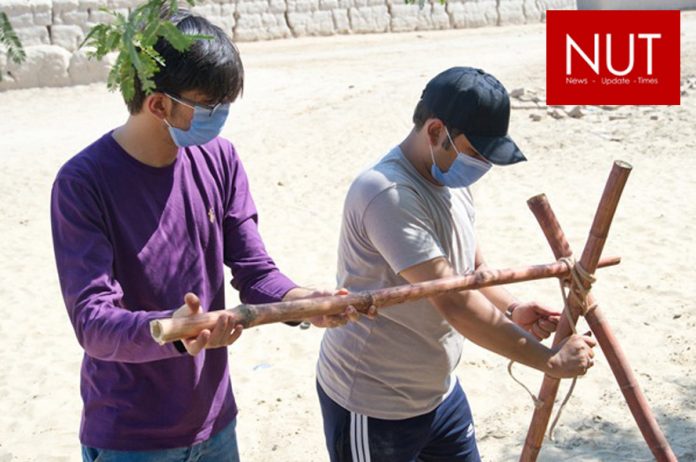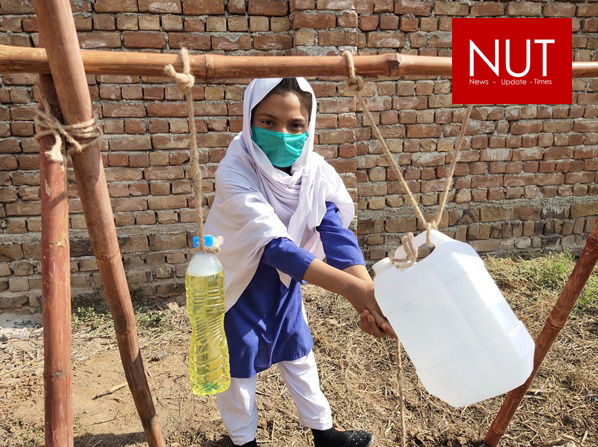In the wake of the COVID-19 pandemic and the looming water crisis in Pakistan, the International Rescue Committee kicked off the installation of TippyTaps across 10 locations in 2 provinces of Pakistan. TippyTaps is a low-cost solution to make clean hand washing water and soap available to the rural communities in remote areas of Pakistan. So far 10 installations have been deployed, which are helping 3000 people wash their hands with minimum water usage every month.
Tippy Taps are easy-to-build handwashing stations requiring readily available and abundant materials that residents can use to wash their hands. The initiative aims to promote and ease hand-hygiene among the locals that would otherwise need to walk long distances just to wash their hands.
Mohammad Khan, a teacher in one of the remote villages praised the initiative claiming that without a way to wash hands frequently at common areas, village residents, especially the elderly and the children, often fall prey to diseases. According to Khan, diarrhoea, typhoid and various forms of the flu are common to his locality and with an initiative that promotes hygiene in the community through easy-to-build solutions that can be replicated, children will grow up inspired by the drive to stay clean while staying safe from both diseases and pandemics like COVID-19.
Tippy Taps are built using two pairs of wooden sticks placed firmly in the ground, at least 3 feet away, in a criss-cross forming an ‘X’ and tied together with rope. A fifth stick is then placed between that ‘X’ on both ends and a 5L bottle of water, and soap or hand-wash is tied to the fifth stick. A pedal is then tied to the bottlecap, and a small hole is punched under the cap to allow water flow. Users simply push the pedal with their feet, causing the bottle to tip over and let a small amount of water out.
The first ‘official’ Tippy Taps was built by Dr Jim Watt in the mid-1980s in Zimbabwe and has since been deployed in Mozambique, Tanzania, Zambia, and Kenya, with a total of over 500 Tippy Taps including the ones that locals and families have copied.







